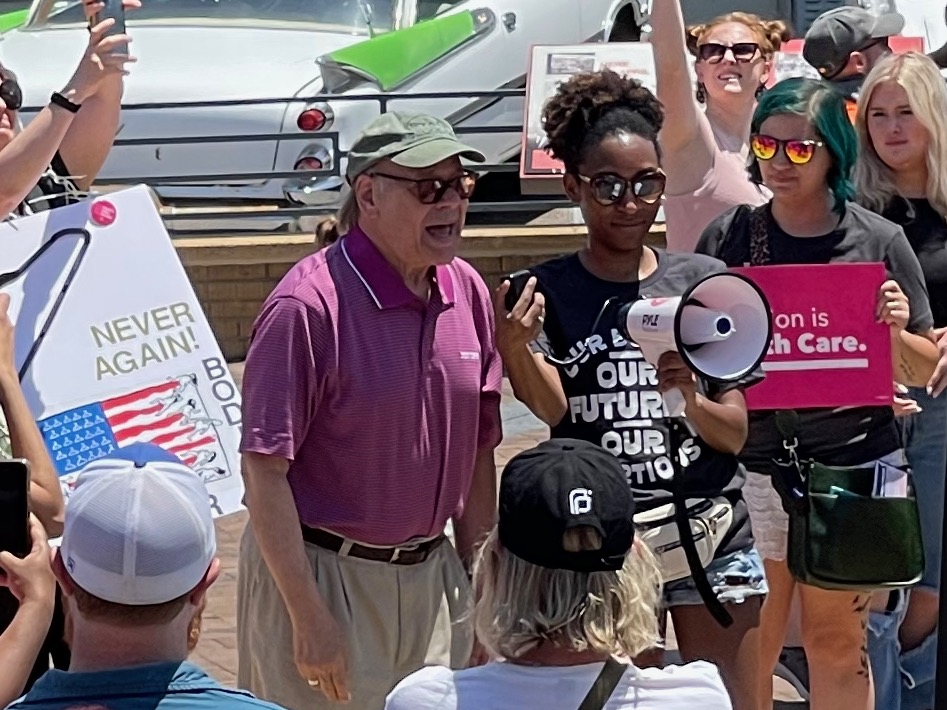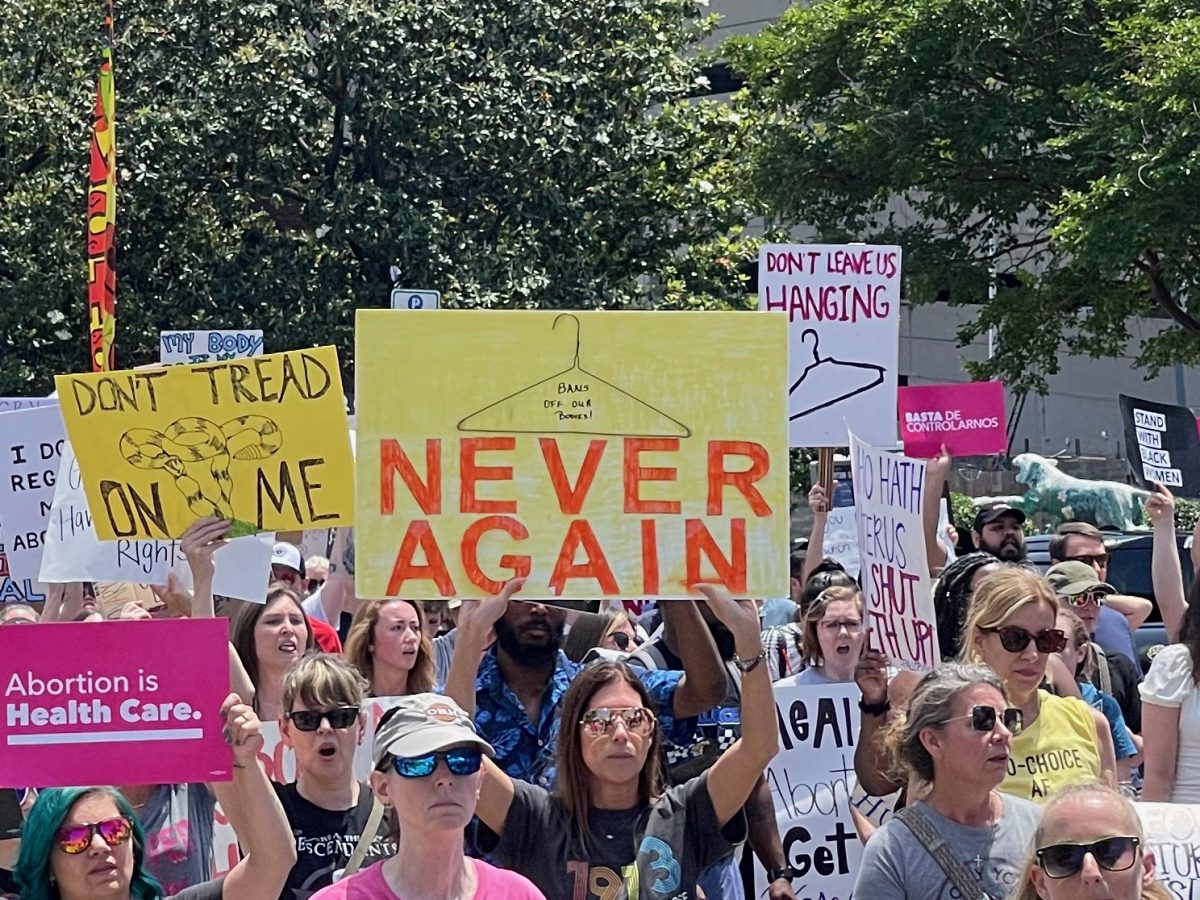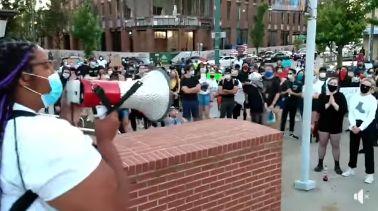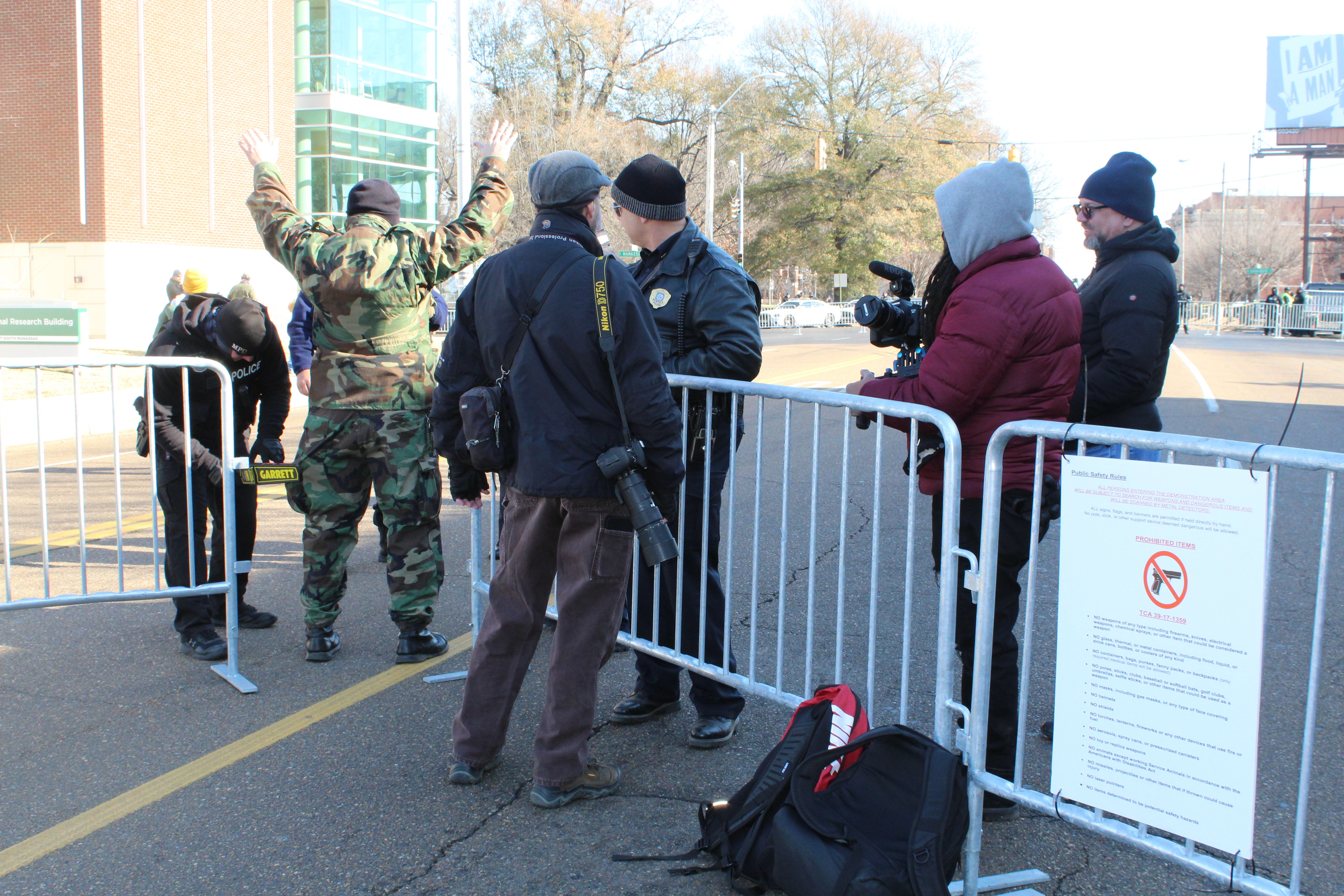Hundreds gathered in the hot sun to rally in support of abortion rights on Saturday in Downtown Memphis. The crowd was protesting the anticipated U.S. Supreme Court decision that would reverse the 50-year precedent of Roe v. Wade, the decision which affirmed women’s Constitutional right to abortion via their right to privacy.
A Planned Parenthood of Memphis and North Mississippi official declined to estimate how many attended the Bans Off Tennessee protest, beyond noting more than 1,200 had signed up for the event through the organization’s online organizing portal. The rally crowd spilled out of Ida B. Wells Plaza, dwarfing the dozen or so Proud Boys counter-protesters, who flashed white supremacist hand signs at the line of feminist protestors facing them across Beale Street.
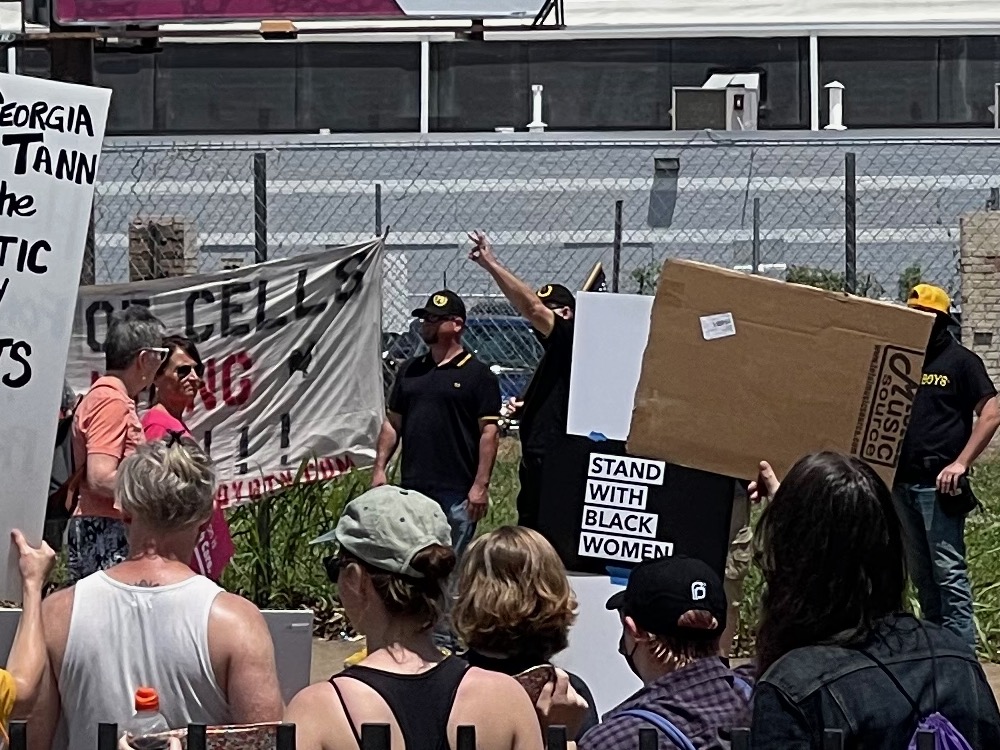
Among the speakers at the hour-long rally were Tennessee House Representative London Lamar, scientist and Shelby County Democratic Party chairwoman Gabby Salinas, Planned Parenthood organizers Antoine Dandridge and Aerris Newton, Shelby County Commissioner Tami Sawyer, and candidate for Tennessee State Senate Ruby Powell Dennis.
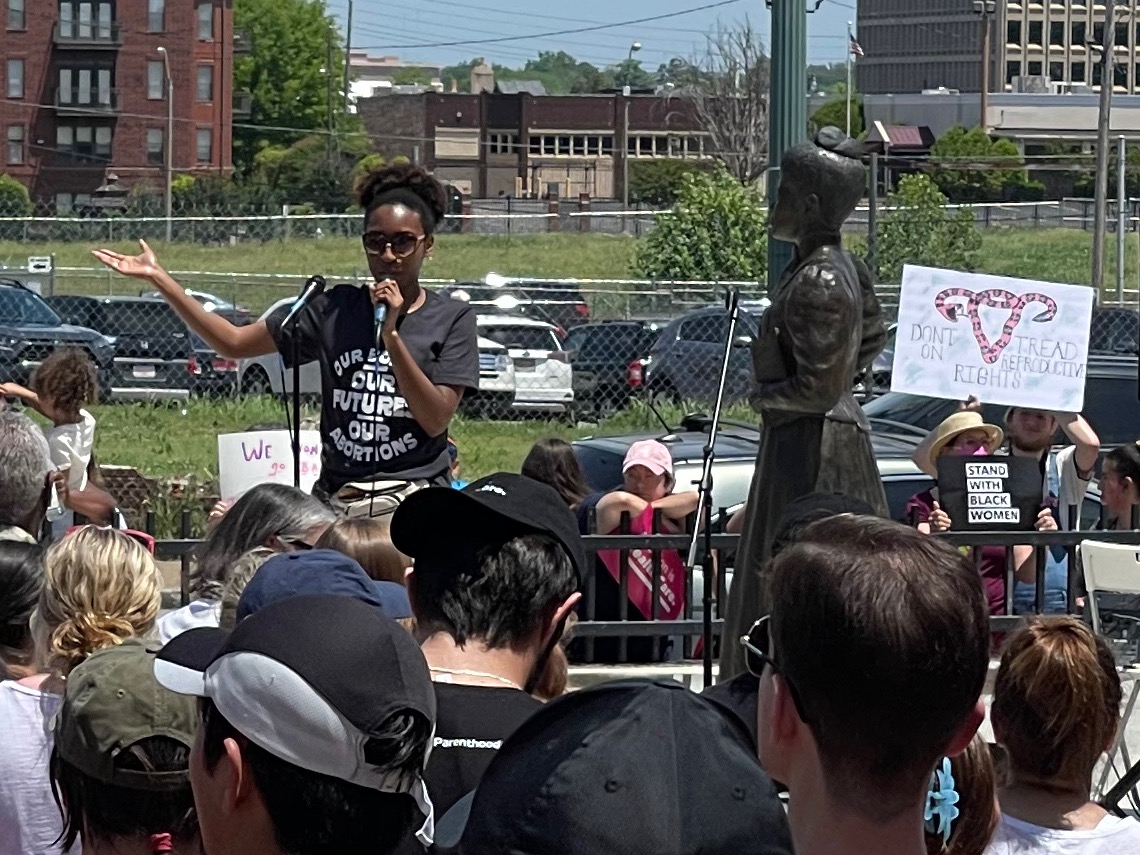
After the rally, most of the attendees braved the heat to march down Beale Street, where tourists and revelers watched and took pictures of the throng. At one point, a street singer incorporated the marchers’ chant “My body, my choice” into a blues song.
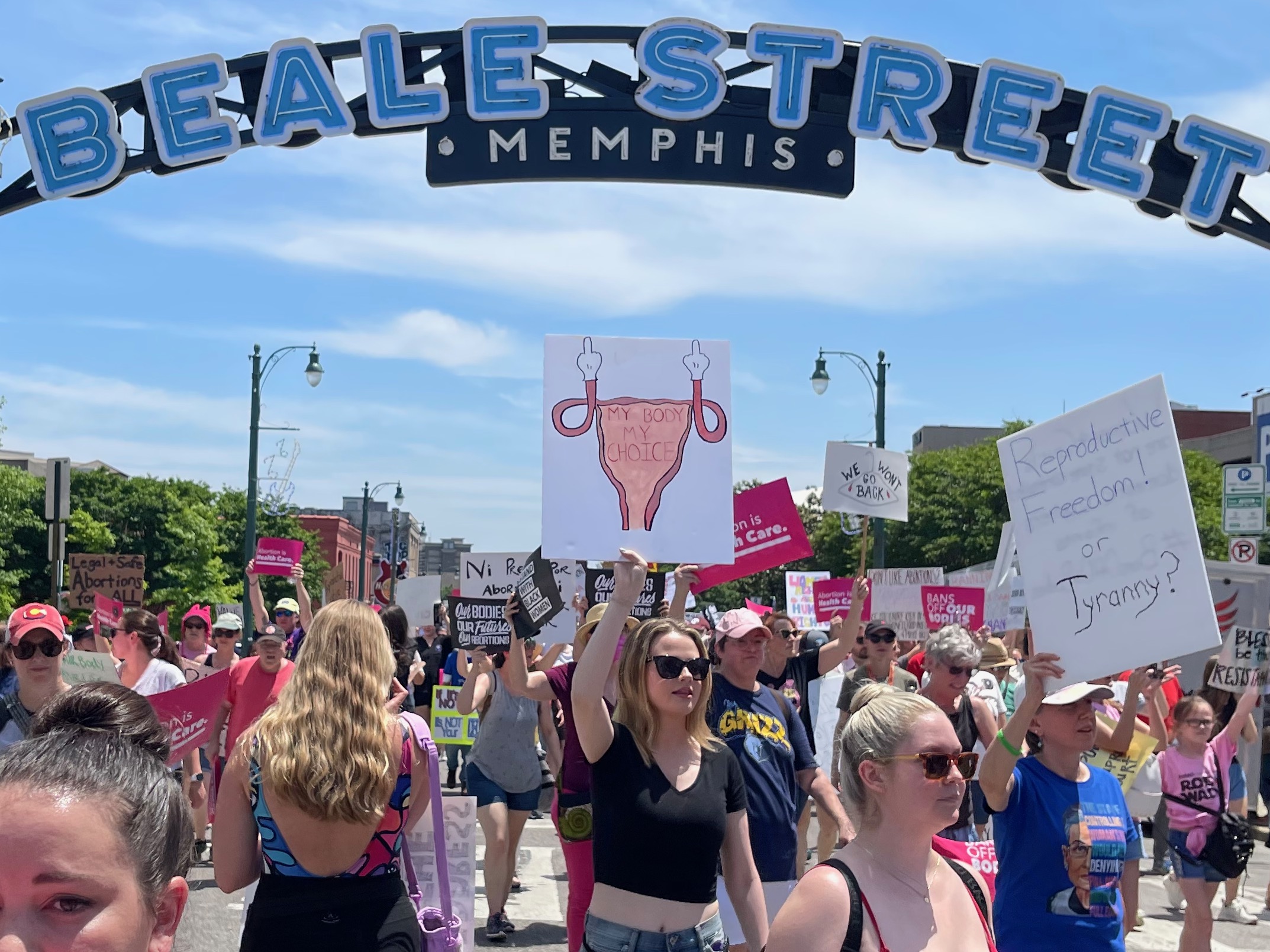

The marchers turned onto Main Street, where their chants of “No justice, no peace” echoed through the urban canyons. While taking pictures of the crowd, this reporter almost ran over Congressman Steve Cohen of Memphis, who was cheering on the marchers from the south sidewalk.
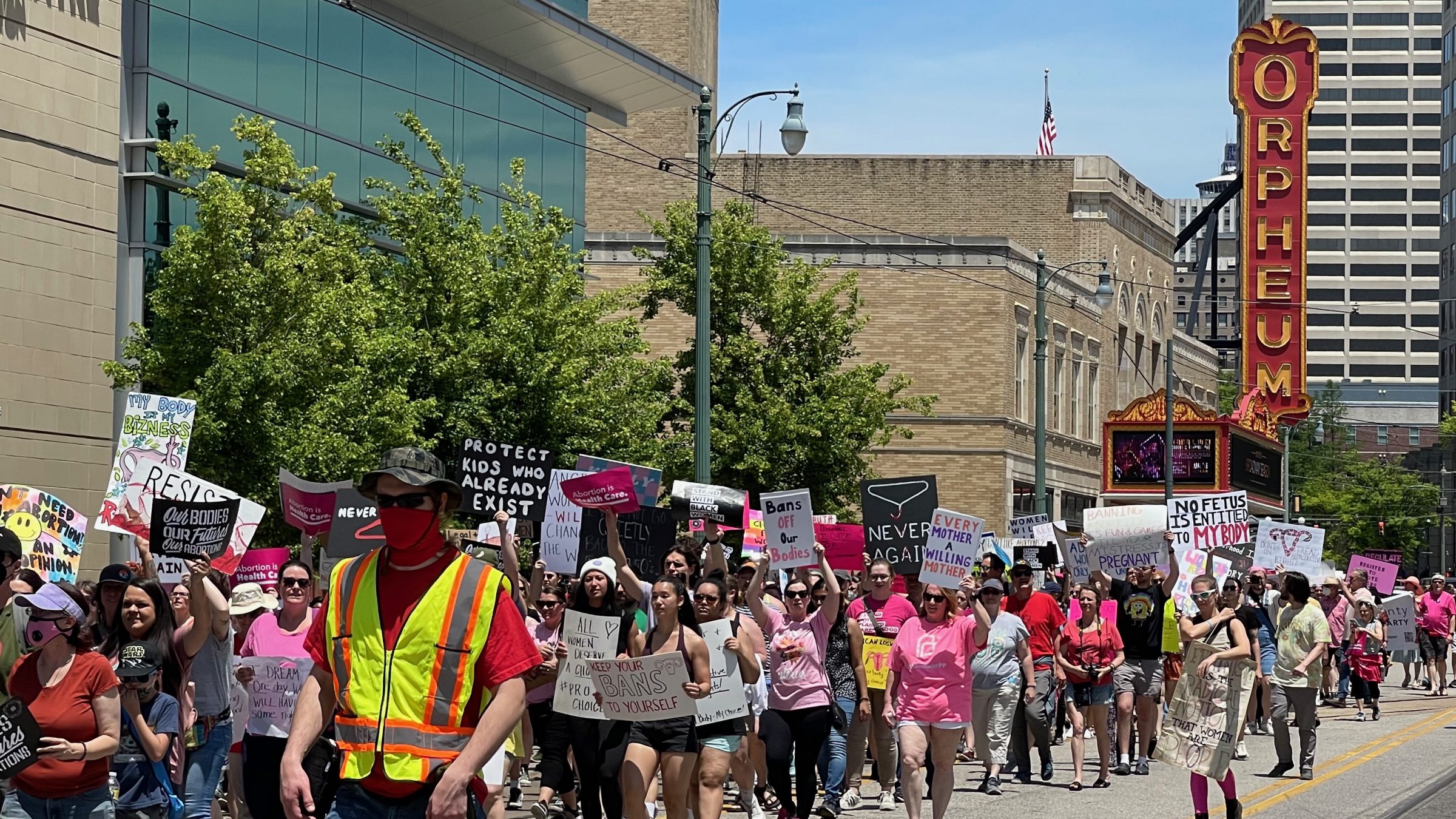
By this time, the tiny counter-protest had melted away. Beyond the occasional thumbs-down along the route, there were few signs of dissent from the marchers message in support of women’s rights to make their own reproductive health decisions.
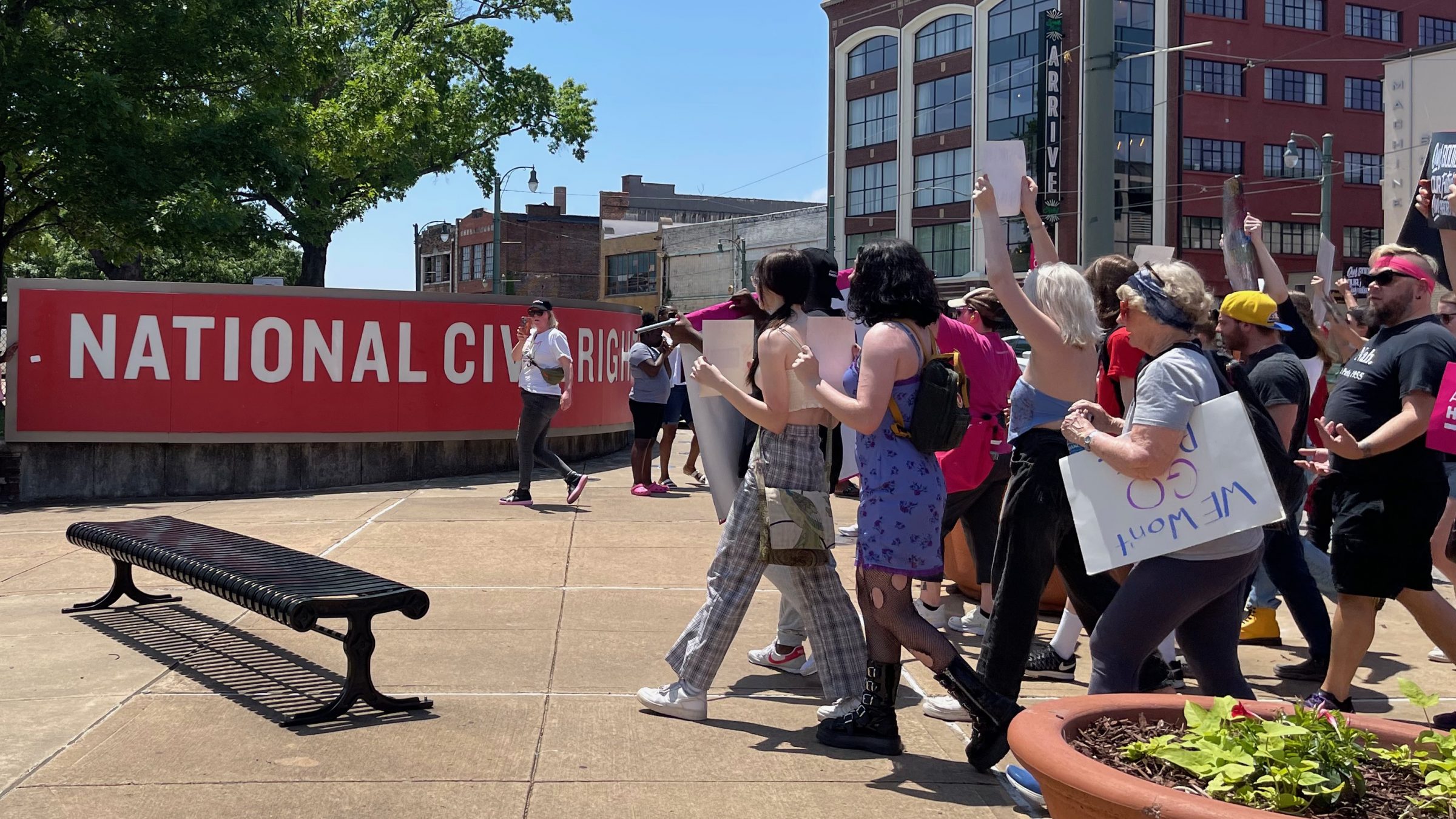
The energized crowd arrived for a second rally at the National Civil Rights Museum, where organizer Newton led chants. Cohen thanked the marchers for braving the heat and told the crowd he was with them “one million percent.” Volunteers handed out water bottles as the protesters mixed about, sharing their stories of experiences with abortion and their personal awakening to the cause. No violence or arrests were observed.
